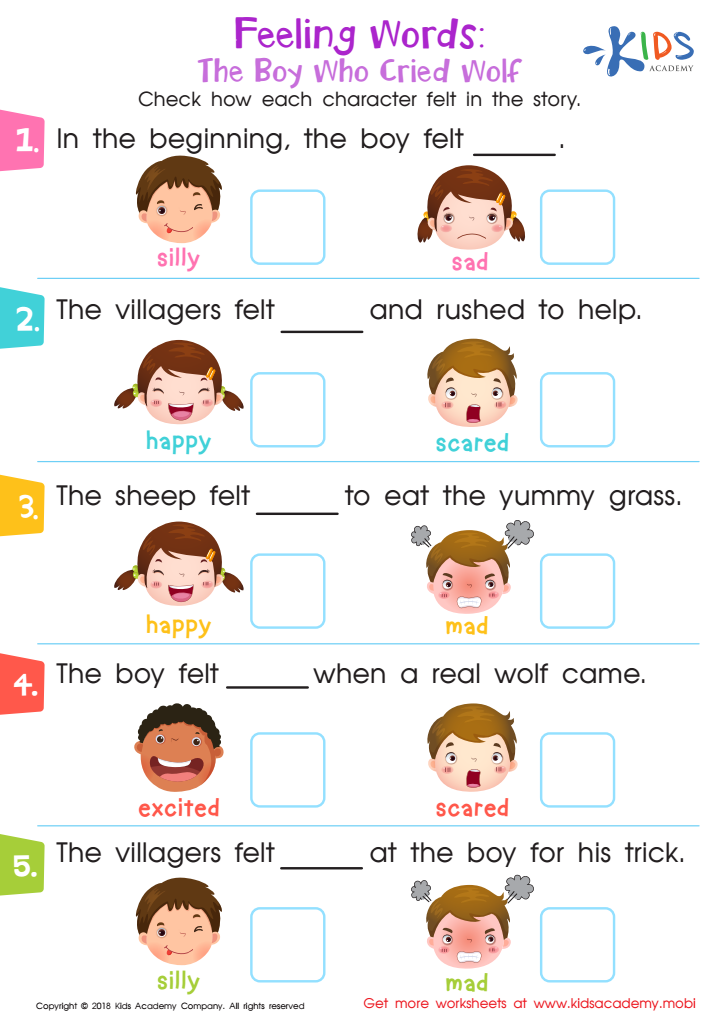Emotional understanding Worksheets for Kids
1 filtered results
-
From - To


Feeling Words: The Boy Who Cried Wolf Worksheet
Question/Answer
How to test a Grade 1 student’s Emotional understanding skills?
To test a Grade 1 student's emotional understanding skills, educators can use storytelling, role-playing, or picture-based activities where the student identifies and expresses emotions depicted in various scenarios. Observing how they recognize, label, and react to different emotions in themselves and others, through discussions or interactive games, can also provide insights into their emotional understanding capabilities.
Why is the Emotional understanding skill important for Grade 1 students?
Emotional understanding skill is important for Grade 1 students as it aids in their social development, enabling them to recognize, express, and manage their emotions effectively. This foundational skill fosters empathy, improves communication with peers and teachers, and supports conflict resolution, contributing to a positive school experience and laying the groundwork for healthy emotional and social growth.
How does the mastery of the Emotional understanding skill affect a student's performance at an early age?
Mastery of the Emotional Understanding skill at an early age significantly enhances a student's performance by improving their social interactions, communication skills, and ability to manage stress. This emotional intelligence facilitates better academic focus, greater resilience in facing challenges, and fosters a positive learning environment, thereby boosting overall scholastic achievement and personal development.
 Assign to the classroom
Assign to the classroom












